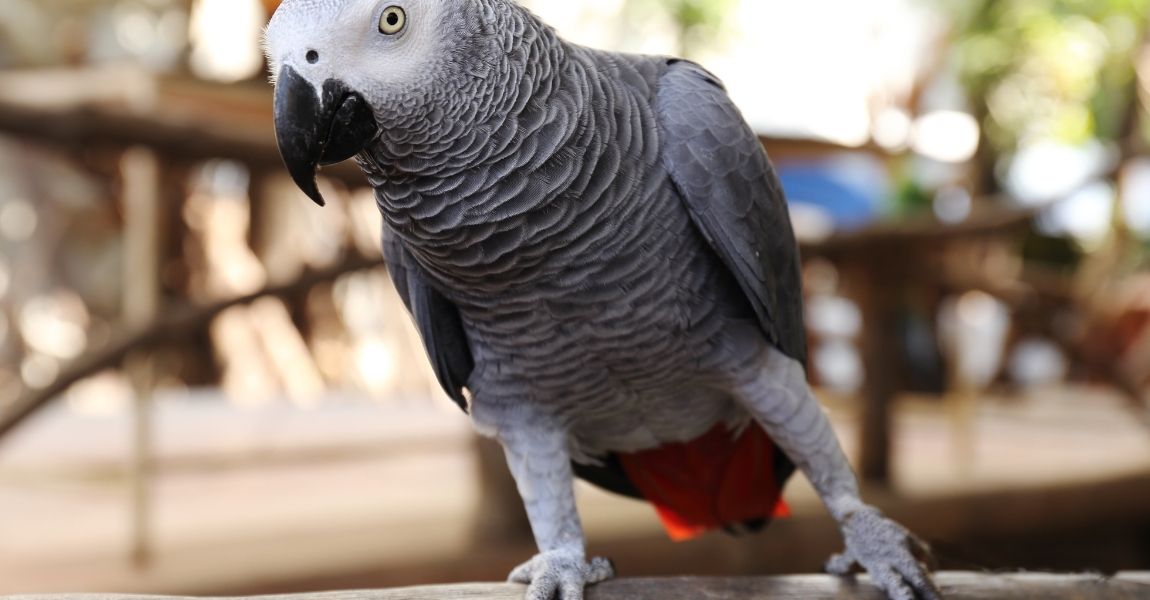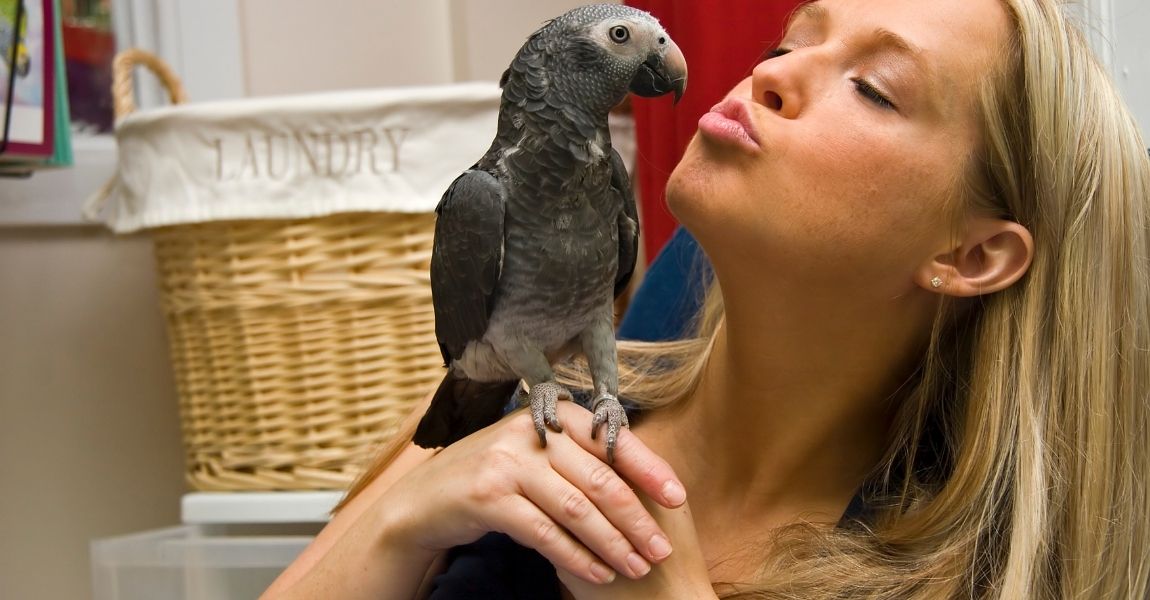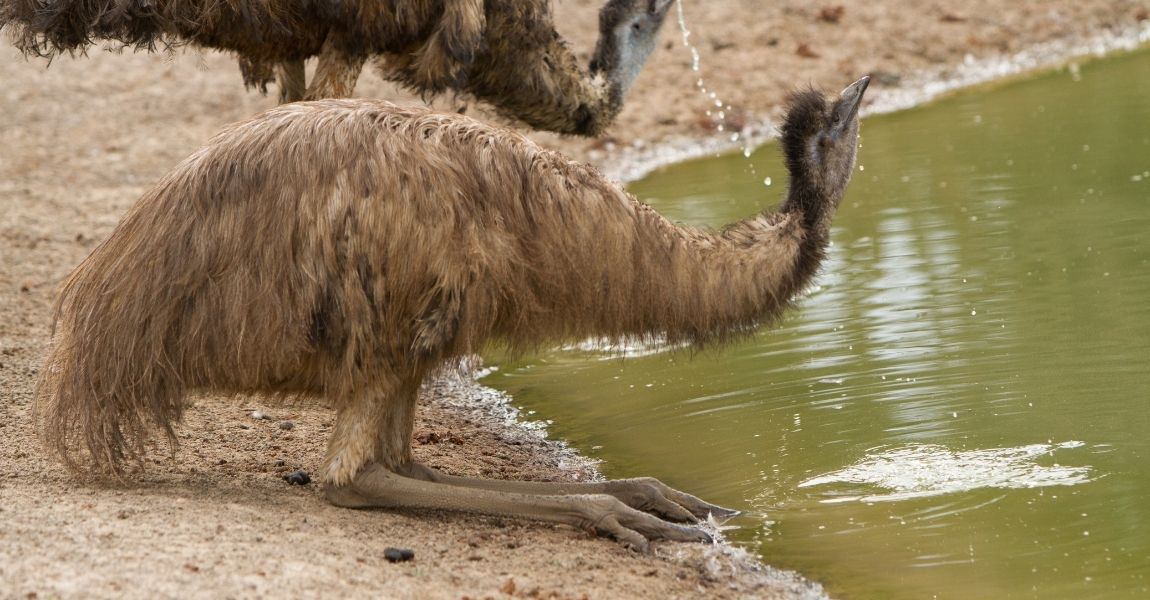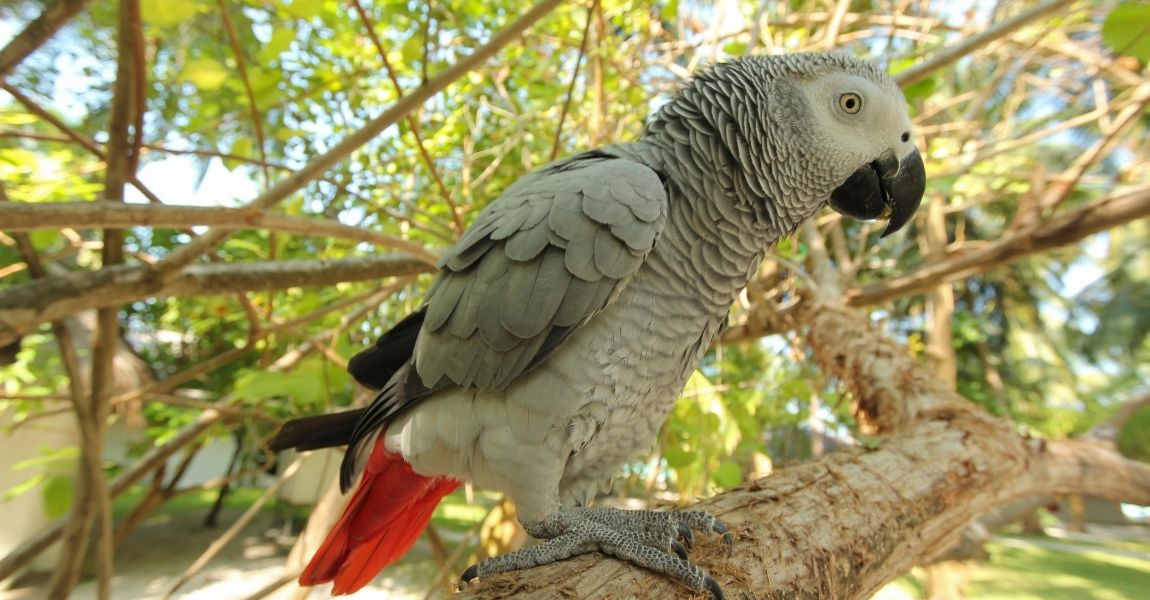Understanding Your Pet African Grey's Strange Behavior
Feather Plucking:
Feather plucking is a behavior where African Greys start pulling out their feathers, leading to bald patches. This behavior can be caused by various factors, including stress, boredom, illness, or improper diet. It's crucial to identify the root cause and address it accordingly. Providing a stimulating environment, offering plenty of toys, ensuring a balanced diet, and consulting with an avian veterinarian are essential steps in managing feather plucking behavior.
Screaming:African Greys are vocal birds, and screaming is a natural way for them to communicate. However, excessive screaming can become problematic for both the bird and its owners. Excessive noise can be a sign of boredom, anxiety, or frustration. Providing mental stimulation through toys, training sessions, and social interaction can help alleviate excessive screaming. It's important to be patient and consistent in redirecting their attention to positive behaviors and rewarding quiet behavior.
Biting:Biting is a behavior that can be both painful and confusing for African Grey owners. Biting can be a result of fear, territorial aggression, hormonal changes, or lack of trust. It's important to identify the triggers that lead to biting and avoid them whenever possible. Building trust through positive reinforcement, socialization, and providing a safe environment can help reduce biting tendencies. Consulting with an avian behaviorist may be necessary for severe cases.
Pacing or Restlessness:African Greys are highly intelligent birds, and they require mental and physical stimulation to thrive. Pacing or restlessness can be a sign of boredom or a lack of environmental enrichment. Providing a variety of toys, puzzles, and regular out-of-cage time can help alleviate this behavior. Additionally, engaging in training sessions and teaching them new tricks can provide mental stimulation and reduce restlessness.
Aggression:African Greys can display aggression towards their owners or other household members. Aggressive behavior can be a result of fear, territoriality, hormonal changes, or previous negative experiences. Understanding the triggers and avoiding situations that provoke aggression is important. Positive reinforcement training techniques, establishing consistent boundaries, and providing a safe and predictable environment can help manage and reduce aggressive behavior.
Vocalizations and Mimicking:African Greys are renowned for their ability to mimic sounds and human speech. While this behavior can be entertaining, it can also be unsettling if they pick up inappropriate language or loud noises. Monitoring their environment, avoiding exposure to negative sounds, and providing appropriate vocalization cues can help shape their mimicking behavior in a positive way.
It's crucial to remember that each African Grey is unique, and their behaviors may vary. Observing and understanding your bird's body language, vocalizations, and patterns can provide valuable insights into their needs and emotions. Regular veterinary check-ups are essential to rule out any underlying health issues that may contribute to strange behaviors.
Lastly, seeking guidance from avian behaviorists or experienced African Grey owners can provide additional support and knowledge in managing and understanding your pet's behavior. With patience, love, and a nurturing environment, you can develop a strong bond with your African Grey and help them thrive physically and emotionally.





